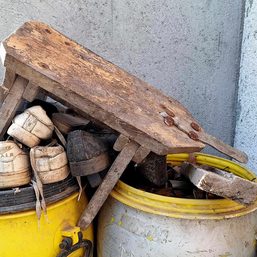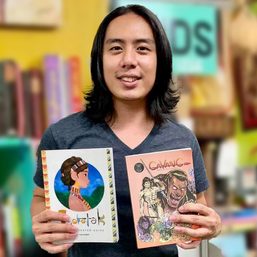SUMMARY
This is AI generated summarization, which may have errors. For context, always refer to the full article.
![[OPINION] Growing up in a loving home is a privilege people should discuss more](https://www.rappler.com/tachyon/2021/10/ispeak-privilege-640.jpg)
I stared at an Excel file containing my student loan computation, anxious to make my stay in business school pay off. But at the back of my mind was a more persistent thought: How lucky would I be if I had a family to shoulder my graduate school expenses? To use my degree any way I want, maybe not even use it, without caring about return on investment?
But my partner, JB, insisted that I do have a family I can ask for help. His aunts and uncles helped with his college and medical school fees, so I could probably ask mine for the same.
I wasn’t sure how to react. I always told JB that our families are opposites, with his being the ideal one. He grew up in a loving home full of people who helped each other out. I was raised in a heartless household filled with broken windows, violent fights, fearful cries, and crippling shouts, uncaring of the irreparable trauma it can bring to us children.
My childhood and early adulthood were besmirched with domestic violence in the hands of the woman who gave birth to me. But I and my father and siblings weren’t her only victims: Our relatives and acquaintances also suffered from this woman’s perverted pursuit of attention, disguised as a request for “familial love.” And this blood relation ruined any hopes for a better extended family, as people would rather stay away from us, who were collateral damage in a woman’s path to self-destruction.
Every day of my life, I wanted to do better to prove to the world that I was different from my biological mother. That I was a decent, considerate, and independent individual who could fend for myself without demanding that people join me in my struggles, including paying my student loans.
Regardless, JB’s insistence for me to reach out for help stroked the cord of envy that I had always held inside. I do not have anyone, unlike most of my classmates in business school. In this journey of paying fees and interests, I am terribly on my own.
But JB could not understand. He wanted me to ask just in case help was available, as if it was easy for a tormentor’s daughter to ask for monetary aid from the tormented. In a world where his ideal family afforded him blissful ignorance to memes about Filipino families fighting over land, JB held a version of reality that contrasted my own.
His views on family came from a place of privilege, one that did not normalize abuse, treat children as objects, and invalidate trauma. His childhood was free from the emotional labor that came from having a narcissistic parent. He did not have to heal from invisible scars caused by unhealthy depictions of love and family. People around JB taught him the value of cultivating bonds with other people, so he did not have many regrets about relationships that ended badly because of a lack of knowledge on how to keep them. And it took me a long time to realize that what he had – a loving and empowering support system at home – was normal, but mine was not.
But JB was not at fault. No one should be criticized for growing up with parents who didn’t abuse them. No one should be forced to defend themselves for having it better. But at the very least, all the JBs of this world should recognize their advantages, reduce their biases, and listen. To empathize with these struggles and make others see that people with terrible childhoods like me exist. To inject our story into mainstream conversations and public consciousness where change can be promoted at higher levels, like in the Congress and Senate. To help make politicians and other stakeholders systematically fight for children’s rights to loving homes and more efficient institutions to protect them.
I’m still learning all the things that I missed because I did not have what JB had. Today, my Excel file allowed me to see another side to my financial disadvantage, but I’m not angry. My anger stops with me. My family’s generational trauma – including treating people disrespectfully and refusing to communicate well – stops with me.
So I patiently talked to JB and asked him to empathize with the limits of my so-called family. And just like how it had always been in the past years, he understood. He always did. And I returned the favor by respecting his point of view as well. After all, the type of family he has is what we want to establish for ourselves in the future. Recognizing that privilege – and discussing what a loving home is not – is the first key to building our own beautiful home someday. – Rappler.com
Jadegia Tacwigan, 25, is an MBA student at the Asian Institute of Management in Makati City.
Add a comment
How does this make you feel?




![[The Slingshot] No, no, no, National Museum! The Boljoon artifacts do not belong to you!](https://www.rappler.com/tachyon/2024/02/tl-boljoon-artifacts-nat-museum-02242024.jpg?resize=257%2C257&crop=270px%2C0px%2C720px%2C720px)




![[Two Pronged] My daughter wants to go to UP, but my husband insists on a ‘good Catholic school’](https://www.rappler.com/tachyon/2024/02/two-pronged-university-issue.jpg?resize=257%2C257&crop=375px%2C0px%2C1080px%2C1080px)
There are no comments yet. Add your comment to start the conversation.